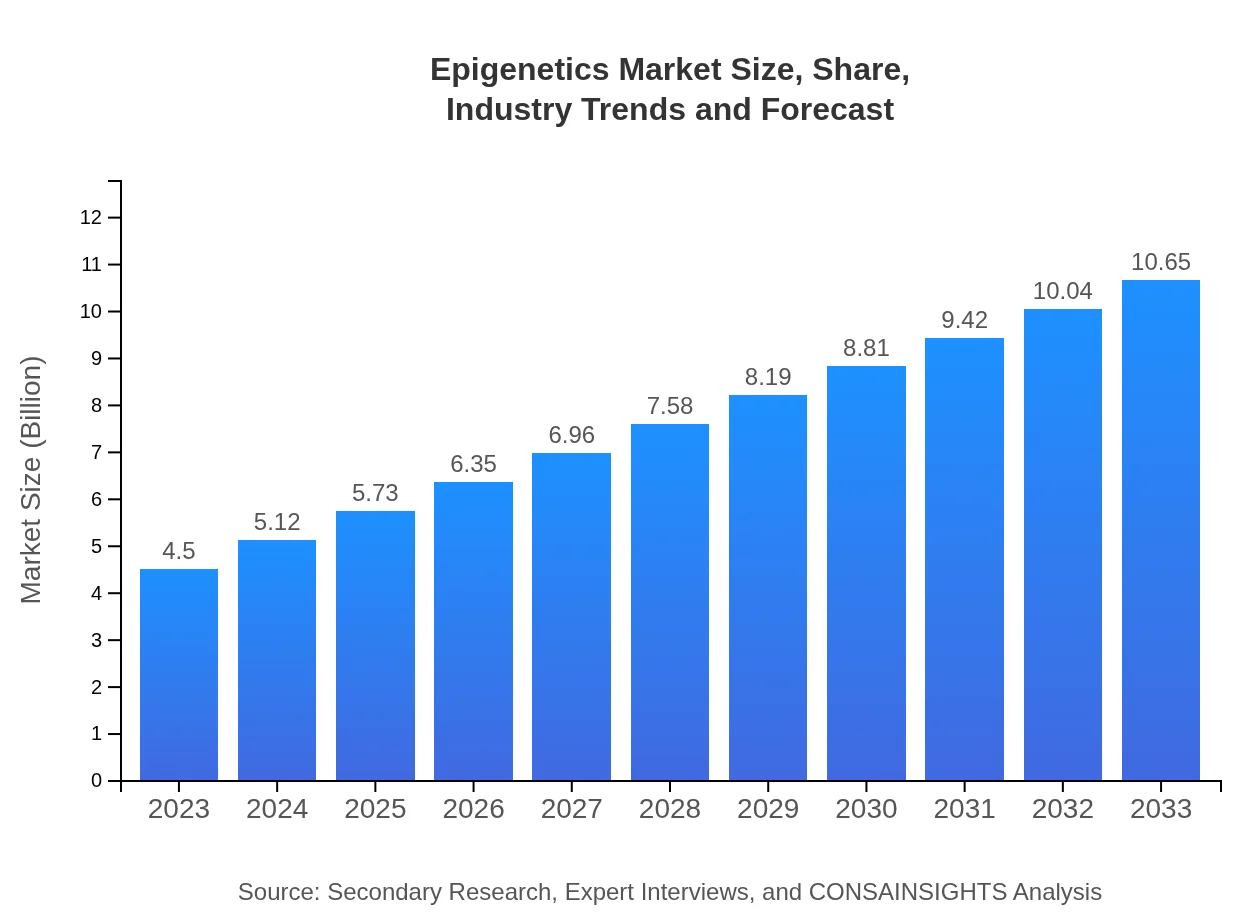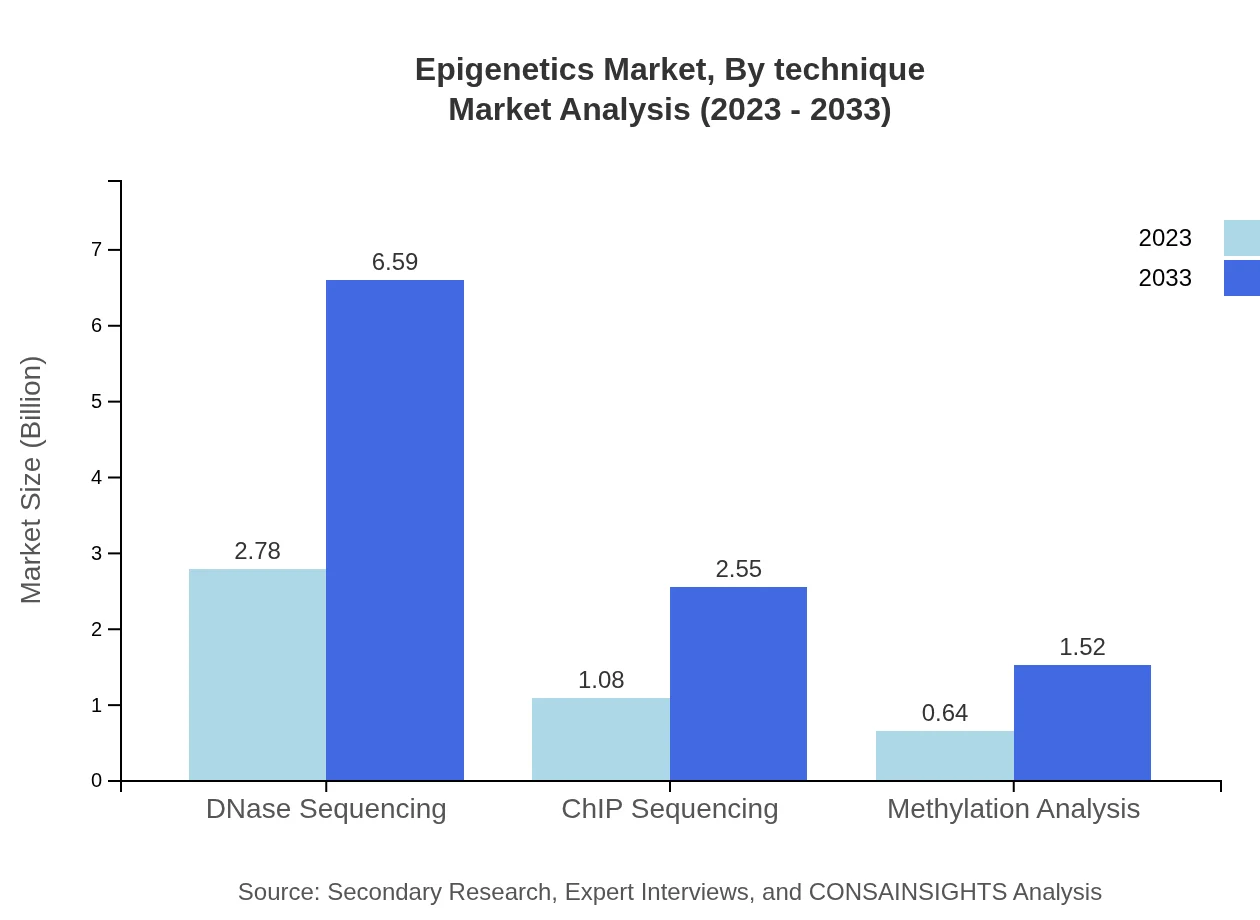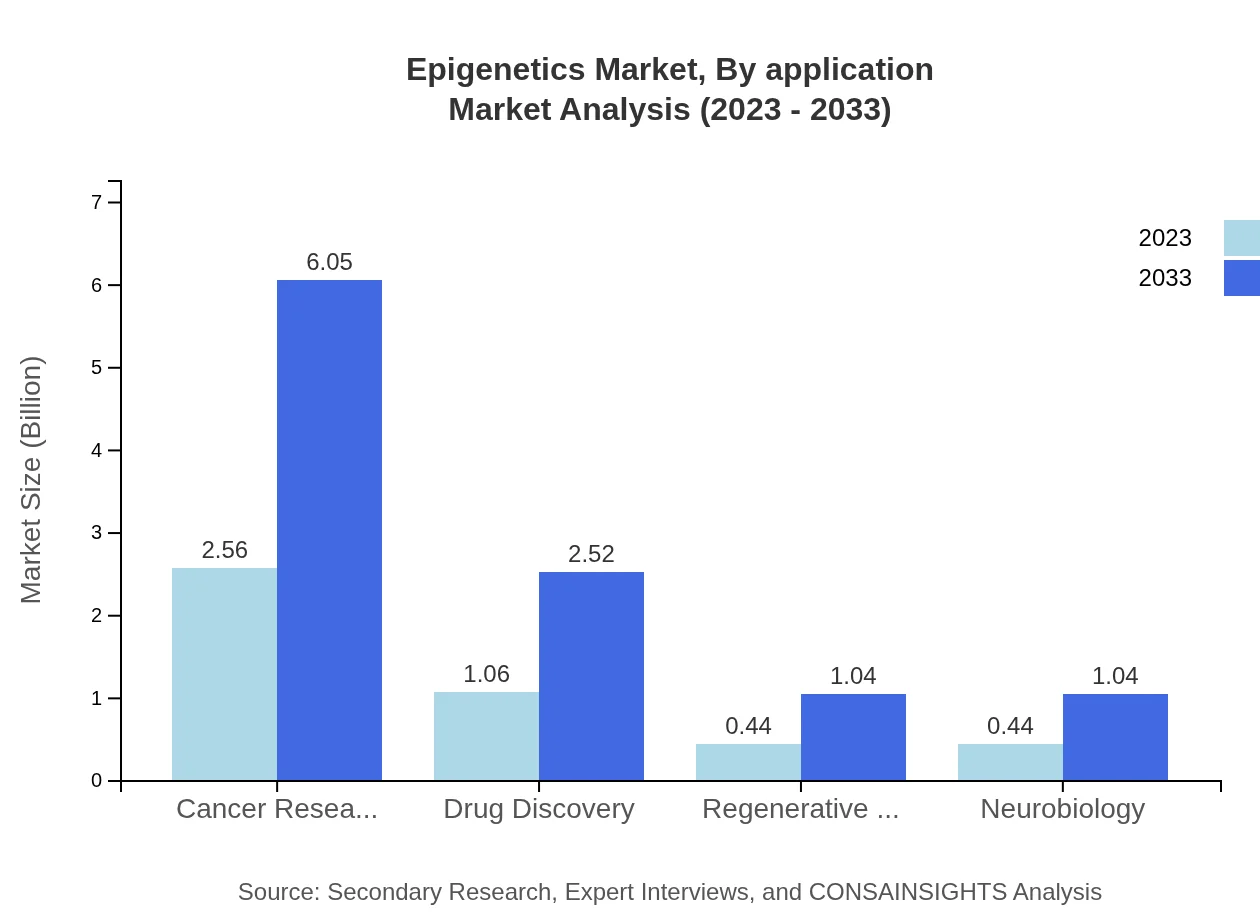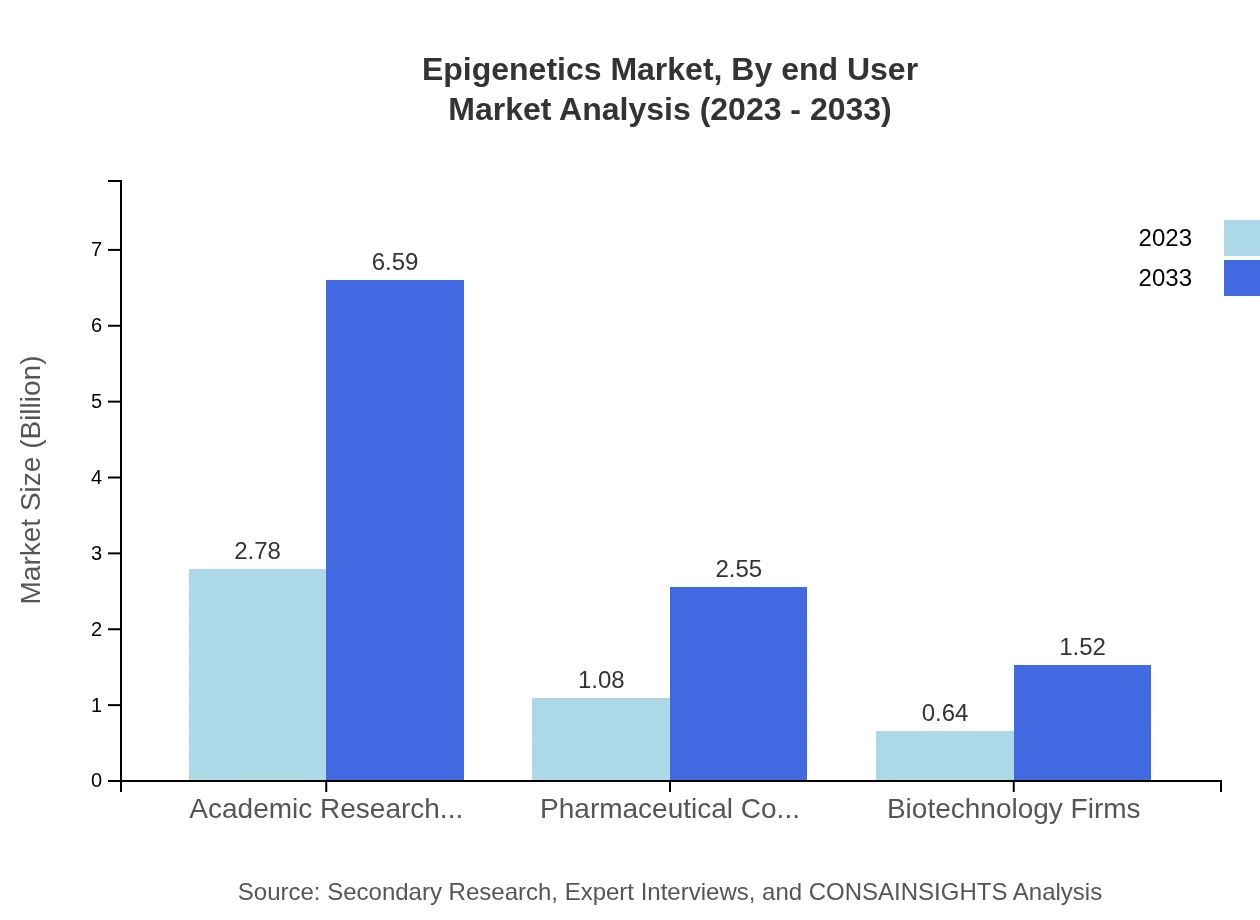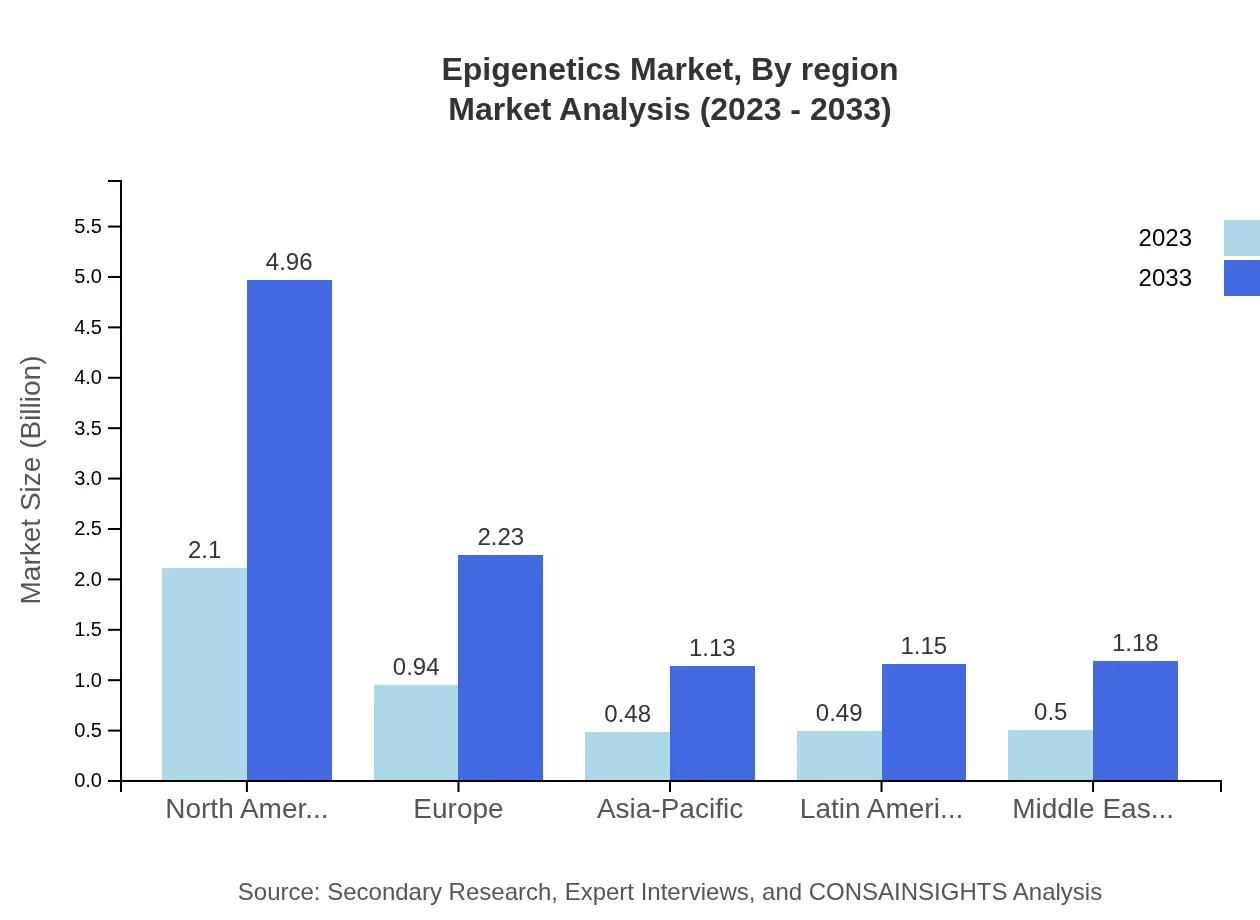Epigenetics Market Report
Published Date: 31 January 2026 | Report Code: epigenetics
Epigenetics Market Size, Share, Industry Trends and Forecast to 2033
This comprehensive report delves into the epigenetics market, detailing its growth from 2023 to 2033. It provides insights into market size, segmentation, trends, and forecasts to equip stakeholders with strategic data for informed decisions.
| Metric | Value |
|---|---|
| Study Period | 2023 - 2033 |
| 2023 Market Size | $4.50 Billion |
| CAGR (2023-2033) | 8.7% |
| 2033 Market Size | $10.65 Billion |
| Top Companies | Illumina, Inc., Thermo Fisher Scientific Inc., Agilent Technologies, Inc., MDxHealth |
| Last Modified Date | 31 January 2026 |
Epigenetics Market Overview
Customize Epigenetics Market Report market research report
- ✔ Get in-depth analysis of Epigenetics market size, growth, and forecasts.
- ✔ Understand Epigenetics's regional dynamics and industry-specific trends.
- ✔ Identify potential applications, end-user demand, and growth segments in Epigenetics
What is the Market Size & CAGR of the Epigenetics market in 2023?
Epigenetics Industry Analysis
Epigenetics Market Segmentation and Scope
Tell us your focus area and get a customized research report.
Epigenetics Market Analysis Report by Region
Europe Epigenetics Market Report:
Europe is witnessing an upward trend, with a market value expected to grow from $1.08 billion in 2023 to $2.56 billion in 2033. Leading research institutes and heightened investment in biotechnological innovations are contributing factors to this growth.Asia Pacific Epigenetics Market Report:
The Asia Pacific market is anticipated to experience substantial growth, increasing from $0.88 billion in 2023 to $2.08 billion by 2033. The expansion is attributed to rising investment in research and development from both public and private sectors, alongside growing awareness of personalized medicine in countries like Japan and China.North America Epigenetics Market Report:
The North American epigenetics market is currently valued at $1.67 billion and is set to reach $3.94 billion by 2033 due to strong research foundations, high healthcare expenditure, and the presence of major biotechnology and pharmaceutical players. This region holds the largest market share of 46.58%.South America Epigenetics Market Report:
South America’s epigenetics market, valued at $0.32 billion in 2023, is predicted to grow to $0.76 billion by 2033. The increase is driven by enhancing academic research capabilities and a focus on healthcare improvement initiatives within the region.Middle East & Africa Epigenetics Market Report:
In the Middle East and Africa, the epigenetics market is projected to increase from $0.55 billion in 2023 to $1.30 billion by 2033, driven by improved healthcare infrastructure and growing investments in biopharmaceutical research across the region.Tell us your focus area and get a customized research report.
Epigenetics Market Analysis By Technique
The epigenetics market by technique includes methodologies such as DNase sequencing, ChIP sequencing, and methylation analysis. DNase sequencing has the highest market share at 61.86% in 2023, expanding to 61.86% in 2033, reflecting its critical role in research. ChIP sequencing holds 23.9% share, highlighting its significance in identifying DNA-protein interactions while methylation analysis captures a notable 14.24% share.
Epigenetics Market Analysis By Application
The applications of epigenetics are diverse, encompassing cancer research – which captures 56.85% of the market share – and drug discovery with a 23.62% share. Regenerative medicine and neurobiology each hold a 9.74% and 9.79% share, respectively, underscoring the potential of epigenetics in developing innovative treatments.
Epigenetics Market Analysis By End User
The academic research institutes dominate the epigenetics market with a 61.86% share in 2023, expected to rise to 61.86% in 2033. Pharmaceutical companies and biotechnology firms follow, indicating robust contributions from these entities towards research and therapeutic innovations.
Epigenetics Market Analysis By Region
Regionally, North America leads the epigenetics market with a share of 46.58% in 2023, expected to maintain its dominance. Europe follows with a 20.9% share, while Asia-Pacific and South America hold 10.64% and 10.78% respectively, showcasing the broadening interest in epigenetics research globally.
Epigenetics Market Trends and Future Forecast
Tell us your focus area and get a customized research report.
Global Market Leaders and Top Companies in Epigenetics Industry
Illumina, Inc.:
A leader in genomic sequencing technology, Illumina provides innovative tools and integrated systems for the analysis of genetic variations and functions that are pivotal in the field of epigenetics.Thermo Fisher Scientific Inc.:
Specializing in scientific instrumentation, Thermo Fisher offers a wide array of epigenetics-related products that cater to research and clinical applications, helping drive advancements in the industry.Agilent Technologies, Inc.:
Agilent provides comprehensive solutions in genomic analysis, contributing significantly to the advancement of epigenetic research through high-quality products and services.MDxHealth:
MDxHealth focuses on epigenetic biomarkers and their application in personalized medicine, addressing critical needs in cancer diagnostics and treatment.We're grateful to work with incredible clients.









FAQs
What is the market size of the epigenetics market?
The global epigenetics market size is valued at approximately $4.5 billion in 2023, with a projected compound annual growth rate (CAGR) of 8.7% by 2033.
What are the key market players or companies in the epigenetics industry?
Key players in the epigenetics market include academic research institutes, pharmaceutical and biotechnology firms, focused on drug discovery, cancer research, and regenerative medicine.
What are the primary factors driving the growth in the epigenetics industry?
Factors driving growth include advancements in drug discovery, increasing cancer research initiatives, and growing interest in personalized medicine leveraging epigenetic modifications.
Which region is the fastest Growing in the epigenetics market?
The Asia-Pacific region is the fastest-growing market, projected to expand from $0.88 billion in 2023 to approximately $2.08 billion by 2033.
Does ConsaInsights provide customized market report data for the epigenetics industry?
Yes, ConsaInsights offers tailored market reports in the epigenetics sector, catering to specific client requirements and focusing on unique market dynamics.
What deliverables can I expect from this epigenetics market research project?
Expect comprehensive reports detailing market analysis, growth forecasts, competitive landscape, regional breakdowns, and detailed segment performance insights.
What are the market trends of the epigenetics market?
Current trends include heightened investment in research, growing adoption of epigenetic therapies, and the integration of epigenetics in personalized healthcare solutions.

